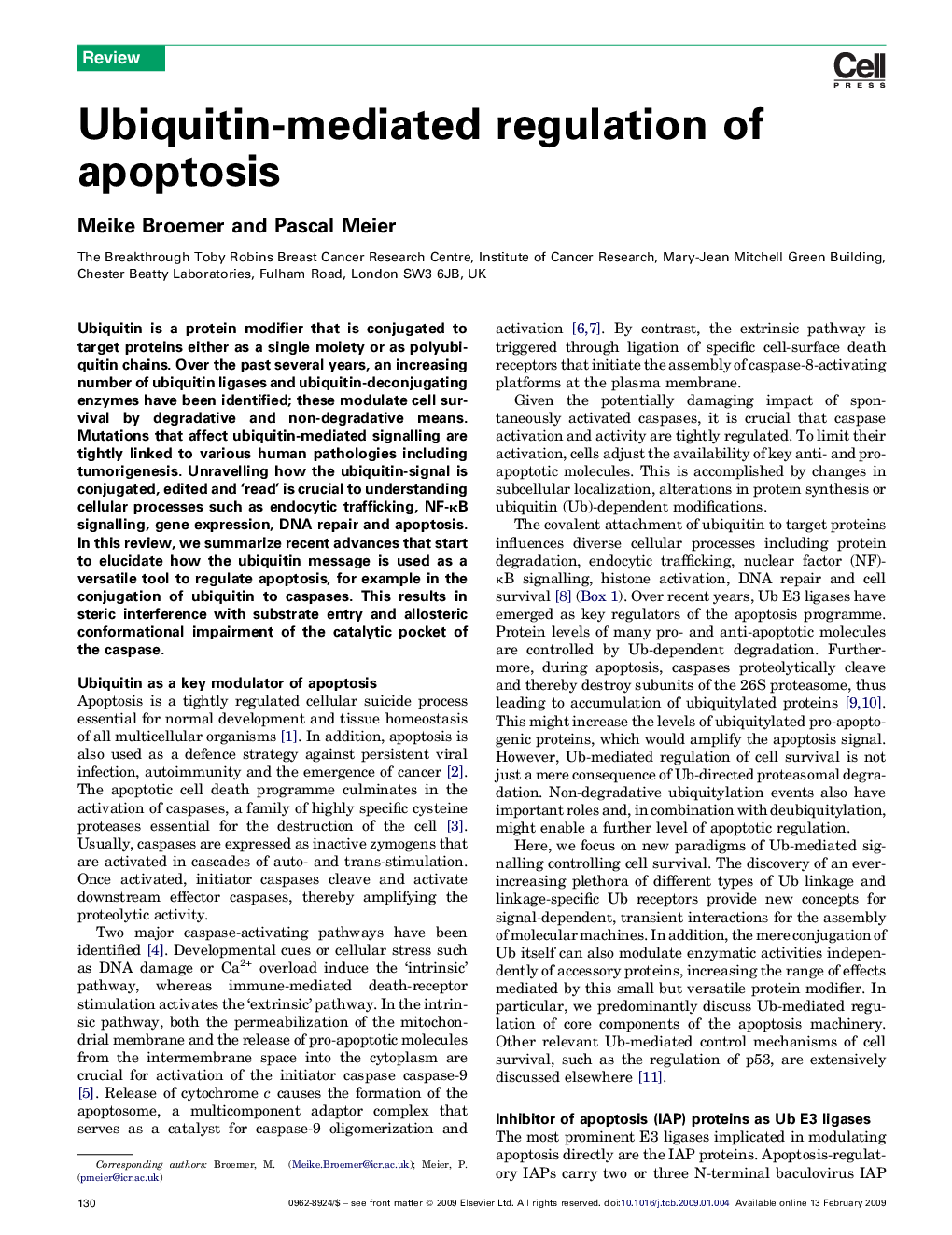| Article ID | Journal | Published Year | Pages | File Type |
|---|---|---|---|---|
| 2205094 | Trends in Cell Biology | 2009 | 11 Pages |
Ubiquitin is a protein modifier that is conjugated to target proteins either as a single moiety or as polyubiquitin chains. Over the past several years, an increasing number of ubiquitin ligases and ubiquitin-deconjugating enzymes have been identified; these modulate cell survival by degradative and non-degradative means. Mutations that affect ubiquitin-mediated signalling are tightly linked to various human pathologies including tumorigenesis. Unravelling how the ubiquitin-signal is conjugated, edited and ‘read’ is crucial to understanding cellular processes such as endocytic trafficking, NF-κB signalling, gene expression, DNA repair and apoptosis. In this review, we summarize recent advances that start to elucidate how the ubiquitin message is used as a versatile tool to regulate apoptosis, for example in the conjugation of ubiquitin to caspases. This results in steric interference with substrate entry and allosteric conformational impairment of the catalytic pocket of the caspase.
